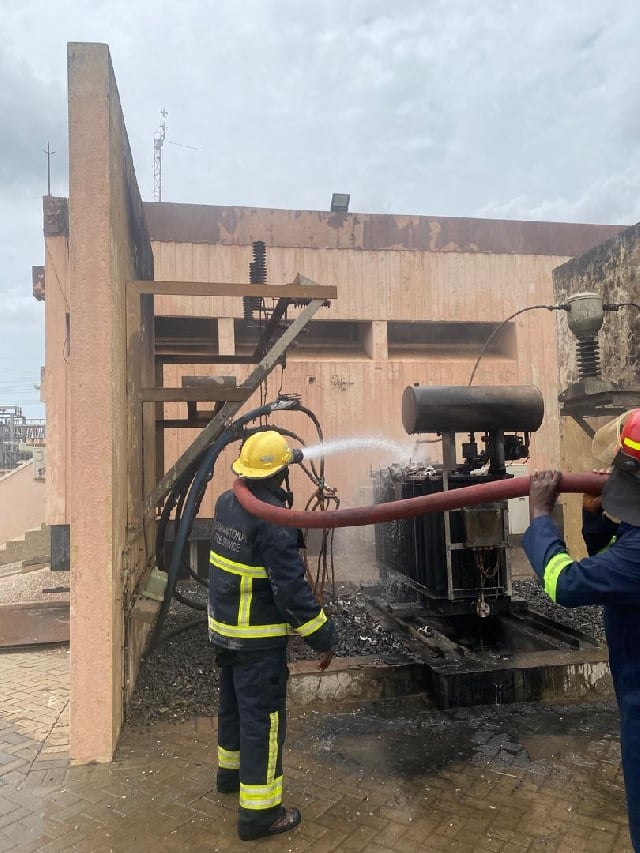The Dzorwulu Bulk Supply Point, a critical component of Accra’s power distribution network, became engulfed in flames on Sunday, May 4th, plunging several parts of the Ghanaian capital into darkness. The fire, which erupted unexpectedly, sent thick, black plumes of smoke billowing into the sky, creating a spectacle visible for miles and drawing the attention of concerned residents and passersby. The immediate impact was the disruption of electricity supply to numerous homes and businesses, bringing daily routines to a standstill and raising concerns about the extent of the damage and the duration of the power outage.
The Ghana National Fire Service (GNFS) swiftly responded to the emergency, deploying firefighters to the scene to combat the raging inferno. Firefighters battled the blaze tirelessly, employing their expertise and equipment to contain and eventually extinguish the fire. The area surrounding the Bulk Supply Point was cordoned off by authorities to ensure public safety and prevent interference with the ongoing firefighting operations. As the fire raged, the cause of the incident remained undetermined, prompting investigations to unravel the circumstances that led to the outbreak.
The Electricity Company of Ghana (ECG), the nation’s primary electricity distributor, acknowledged the fire incident and its consequential impact on the power supply to affected areas. In a public statement, the ECG confirmed the disruption and assured customers that its teams were working diligently to restore power as soon as the fire was fully extinguished and comprehensive safety assessments were conducted. The company recognized the inconvenience caused by the unexpected outage and appealed to the public for calm and cooperation while its personnel worked to rectify the situation.
The fire at the Dzorwulu Bulk Supply Point underscores the vulnerability of critical infrastructure and the potential for unforeseen events to disrupt essential services. The incident serves as a stark reminder of the importance of robust fire safety measures, regular maintenance of electrical installations, and prompt emergency response mechanisms. The disruption to power supply had cascading effects, impacting businesses, households, and essential services. The economic implications of the outage, while yet to be fully quantified, are likely to be significant, particularly for businesses reliant on continuous power supply.
The incident also highlighted the importance of communication and public information during emergencies. The ECG’s prompt acknowledgment of the situation and its commitment to restoring power helped manage public anxiety and provided a sense of reassurance. The transparent communication by the ECG regarding the progress of restoration efforts was crucial in maintaining public trust and minimizing speculation. Furthermore, the incident emphasized the need for emergency preparedness plans, both at the individual and community levels, to mitigate the impact of such disruptions.
Looking ahead, a thorough investigation into the cause of the fire is essential to prevent similar incidents in the future. The findings of the investigation will inform recommendations for enhancing safety protocols, improving infrastructure resilience, and refining emergency response procedures. The Dzorwulu fire serves as a valuable learning opportunity to strengthen the power distribution network and ensure the reliable delivery of electricity to the citizens of Accra. The incident underscores the importance of continuous investment in infrastructure upgrades, regular safety inspections, and well-trained emergency response personnel.


